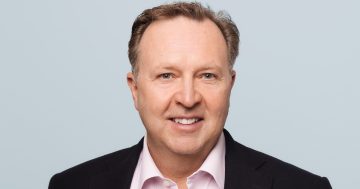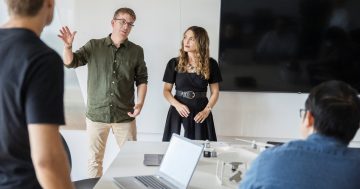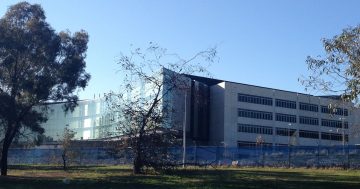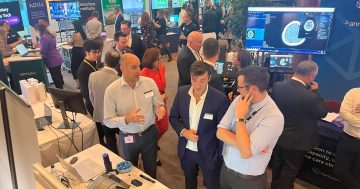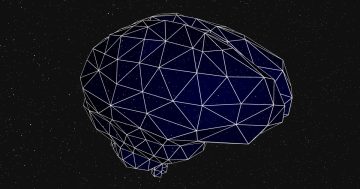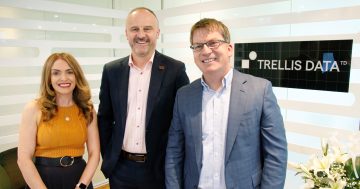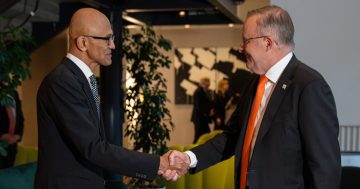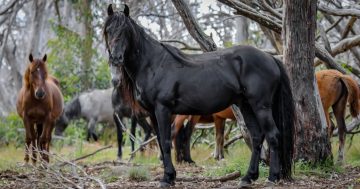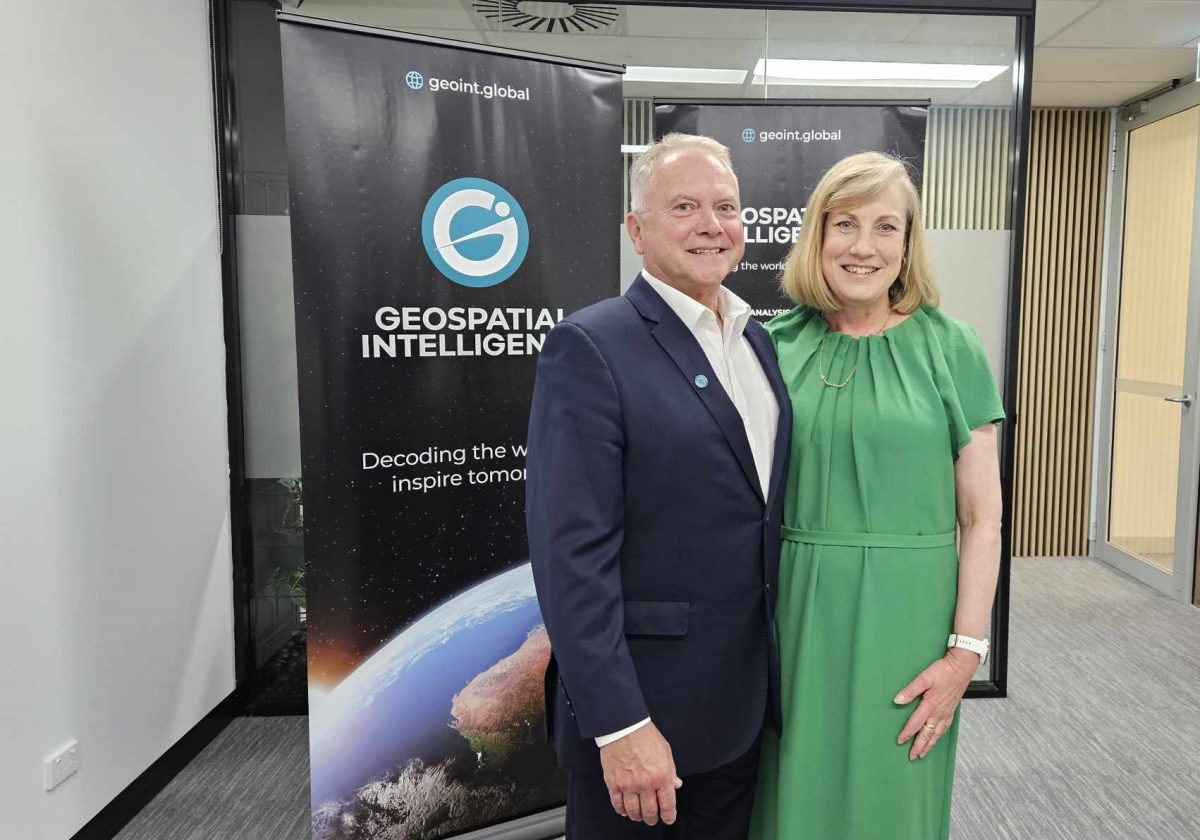
Geospatial Intelligence founders Rob and Judy Coorey: providing meaningful data can save lives. Photo: Geospatial Intelligence.
A Canberra technology firm that uses AI and machine learning to make life-saving sense of the mountains of data it gets from satellites and open sources is expanding its operations to Europe, opening an office in the UK.
A Canberra tech pioneer and success story, Geospatial Intelligence is celebrating 21 years in business this week and is marking the occasion with a rebrand, and it’s establishing a physical foothold overseas.
CEO Rob Coorey, who founded the company with his accountant wife Judy in 2002, said that while Geospatial was doing plenty of work around the globe, the opening of the UK office aimed to give it a concrete presence in a growing market for meaningful data.
Mr Coorey, an ANU alumnus with a background in environmental management, said governments, and increasingly the private sector, particularly mining companies, used their services to manage issues and understand trends across a range of subject areas. These include disease detection, natural disasters, bushfires, climate change, vegetation clearing, biosecurity and national security issues.
Companies were also increasingly concerned about how to meet their carbon compliance obligations.
“We use smart technology to interpret the data to see where things are likely to happen in a certain location,” Mr Coorey said.
“How often have you heard after a natural disaster, whether it’s a cyclone or flood or even a security issue, ‘Ah! All the data was there’?
“What we try to do is take that data to give people warnings to save lives.”
The company deployed machine learning because it was impossible for humans to crunch the astronomical amount of data it received, Mr Coorey said.
It had relationships with multiple satellite operators around the world but also had the tech to harvest information from free sources such as websites, the media and blog sites.
Mr Coorey said the company used licensed products where available or created its own, two of which were out in the market.
Geospatial Intelligence has 20 to 25 employees, and outside Canberra, an office on the Sunshine Coast in Queensland.
It has made one hire in the UK and was recruiting other staff.
Mr Coorey said using the UK as a stepping stone to Europe made sense given the similarities to Australia’s financial and legal systems.
It also had an excellent supply of skilled workers from its universities.
The company hopes to capitalise on previous work for the UK Government during the COVID-19 pandemic.
“We continue to do work in the health sector, so we thought it better to have a presence,” Mr Coorey said.
“People still want to have face-to-face meetings. You can’t do everything over Zoom.”
He hoped that under the UK-Australia free trade agreement, staff would be able to move between the two countries, so the move overseas should have lots of benefits for employees.
Mr Coorey is confident that technology is not only the future for Canberra but the country, especially as industries such as mining receded.
But getting to the smart economy could do with a less risk-averse investment climate in Australia and more assistance from government to retain and commercialise the many great ideas Australians were capable of.
Mr Coorey said government grants required a co-contribution from companies, and the paperwork was time-consuming and costly, and then governments “wonder why they are not taken up”.
Mr Coorey said government did not think long-term and that needed to change for the economy to grow.
“There is always more to do to foster new ideas and innovation, not just bring them to the surface but support them to be commercial,” he said.
Passionate about Canberra, Mr Coorey said the company would likely always be based in the national capital.


 It would be great if there could be some research into methods to make…
It would be great if there could be some research into methods to make… 









